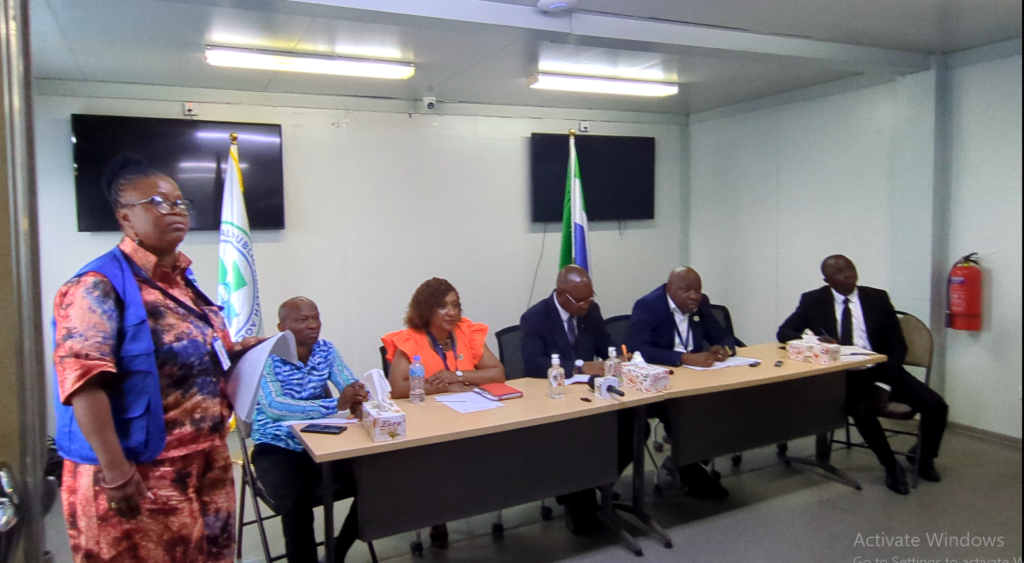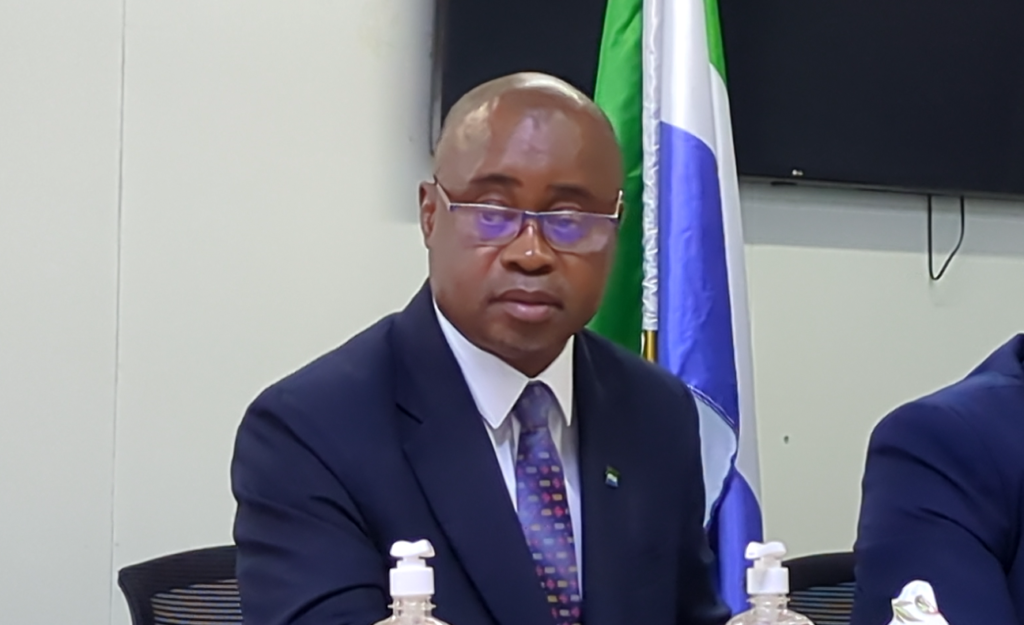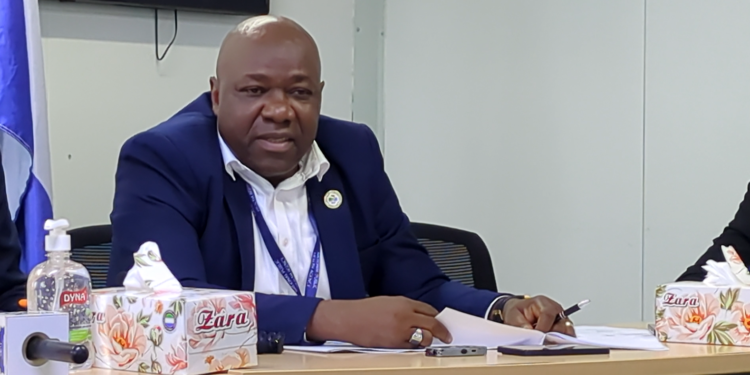By Kemo Cham

Officials from Ministry of Health and NPHA at presser on mpox at the EOC on Thursday, May 29, 2025.
Sierra Leone is expecting to receive a fresh consignment of Mpox vaccine this weekend as the country ramps up its response to the raging viral epidemic.
Authorities at the National Public Health Agency (NPHA) and the Ministry of Health said on Thursday that a total of 20, 000 doses of the vaccines are expected to arrive on Sunday. The vaccines, according to the officials, will be used on highest risk contacts.
Sierra Leone has witnessed an exponential increase in cases of Mpox cases within the last two months, placing the country at the top of African nations actively transmitting the virus, according to data from the Africa CDC.
“We will continue our drive to procure more vaccines through partner coordination – the government is doing everything possible to make sure that we get more vaccines,” Prof. Foday Sahr, Executive Director of the NPHA, told journalists at a press briefing at the Emergency Operations Center of the Ministry of Health.
As of Thursday, Sierra Leone had recorded a cumulative confirmed cases of 3,350, with 16 deaths, according to the daily Mpox update released by the NPHA. Data released by Africa CDC on the same day reveals that Sierra Leone is one of 12 countries driving the upward trend of the continental cases of the viral disease, out of 19 countries actively transmitting the virus. Sierra Leone alone accounted for 74 percent of a total of 999 new confirmed cases in the previous week, continuing with its lead over the last six weeks.
A team of experts from the Africa CDC’s Incident Management Support Team (IMST) is expected in the country to boost its response efforts as part of the continental public health agency’s support to hotspot nations.
Ahead of this, the NPHA is also intensifying its response by deploying more epidemiologists in hotspots regions across the country and boosting bed capacity. The agency said it has recently established a 500-bed facility in Kalaba Town in the east end of Freetown, as part of efforts to make available a total of 1000 beds nationwide.
Sierra Leone has also seen improvement in a number of areas in the last few weeks, including testing and sequencing, noted Prof. Sahr. Until now, the country was conducting its sequencing in Senegal. The NPHA boss said two labs – one at the Central Reference Laboratory in Lakkah, Freetown and the other in the Kenema Government Hospital – have been equipped to conduct sequencing. he said so far results from the work of these labs revealed the clad 11b strain of the virus is responsible for all cases in the country, which is common to the West African region.
“What the sequence results has shown us again is that there is intensive human to human transmission which has been going on over some time,” he said.

As Sierra Leone struggles to break the chain of transmission of the virus, authorities are now counting on increased public awareness and observance of infection prevention control measures to complement the meagre amount of available vaccines targeted at the most vulnerable groups of people.
As of Thursday, NPHA says 40,000 of the 58,000 doses of the first batch of the vaccines have been utilized, leaving just about 18, 000 available doses.
“It is not a one prone approach, it is a multi-prone approach – removing sick persons within the community and bringing them under our facilities, adhering to IPC measures, vaccinating high risk contacts, all these cumulatively work towards breaking the chain of transmission,” said Prof. Sahr.
But in the face of the competing demand for the small amount of vaccine, authorities insist that the policy remains to focus on people at highest risks, mostly healthcare workers. Dr Sulaiman Lakkoh, the head of the HIV response in the Ministry of Health, told reporters that the response has also taken into account key populations in the HIV response, notably Men who have Sex with Men (MSM), Female Sex Workers (FSW) and people who inject drugs, all of whom are considered as the most vulnerable to the virus. This, he noted, is in line with recommendations of the Africa CDC.
“What we are doing is integrating Mpox response into this vulnerable population services,” said Dr Lakkoh, stressing on the insufficiency of the vaccines.
“We have over 77,000 people living with HIV, we have not been able to vaccinate up to 5,000. When you talk about key populations…all these population groups, when you put them together, we are taking about 195, 000 and you have 58,000 (doses of) vaccines, even when you add 20,000, it is still not enough,” he said.
The health authorities stressed that these vulnerable people are of priority because of their susceptibility not just to the virus but also to dying from it. All of the people who have died from the virus reportedly lost their lives due to underlying conditions.






















